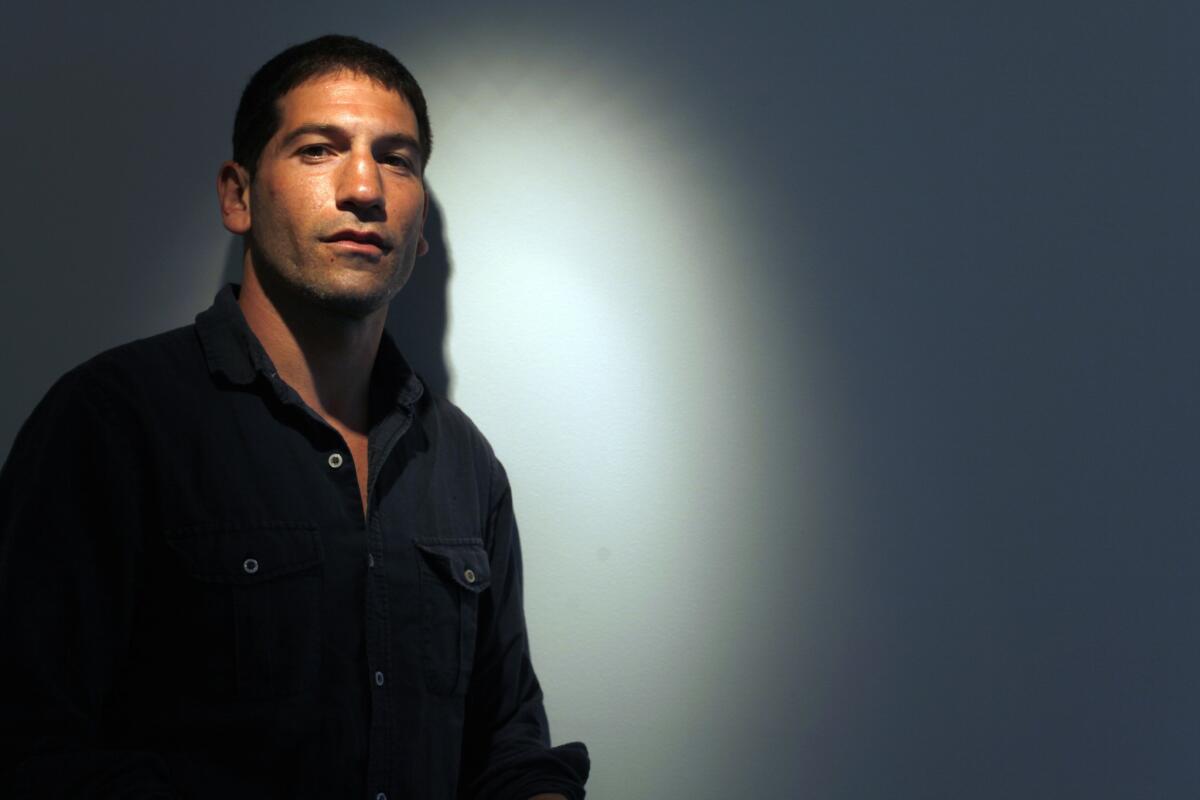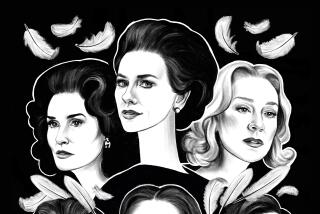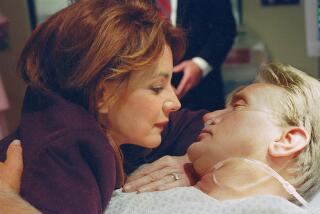Jon Bernthal’s unhinged lawman is still walking (dead) tall

Anyone familiar with the comic books that inspired AMC’s hit series “The Walking Dead” might have had an inkling that Jon Bernthal’s increasingly unhinged former lawman Shane Walsh wouldn’t survive the show’s unforgiving post-apocalyptic landscape. But it wasn’t a hungry zombie that did Shane in — it was a knife wound to the gut courtesy of his former best friend and partner, delivered in a spectacular moonlight standoff in the second-season finale.
Life after death seems to agree with Bernthal, though, who arrived for a recent afternoon interview in good spirits, his sweet-natured pit bull, Boss, by his side. The next day, Bernthal was due to begin work on his next TV gig, starring in a 1940s gangster-era pilot for “Walking Dead” creator Frank Darabont, who unexpectedly parted ways with the series in a highly publicized rift last summer. But Bernthal was happy to reflect on the time he spent inhabiting Shane, the tightly coiled catalyst for so much that happened on “The Walking Dead,” good and bad.
Were you sad to learn that Shane wouldn’t survive the season finale?
When you’re an actor, you’re a soldier to the story. If you’re a casualty of that, and that casualty serves the story, then so be it. I’m totally down for that. I knew from the jump he was not necessarily going to last for too long. I miss him. I fell in love with this character, and I think it’s a scary thing to do because so many people feel like he’s a dangerous, vicious guy, but my heart really went out for this guy.
GRAPHIC: When TV characters die
Shane’s an incredibly morally compromised character — he’s murdered two men and planned to kill his best friend, among other things. Why did you have such sympathy for him?
My goal from the beginning was not to play this guy as a one-note villain like he sort of is in the comic book. He’s not a guy who loses it one day and says, ‘I’m an evil son of a bitch now. I’m coming and hell’s coming with me.’ I never wanted this guy to be that. I thought one of the real keys to this character, especially in this season, was his loneliness and his solitude. I really do feel the kind of loneliness Shane was suffering from was not the kind of loneliness you suffer when you’re far away from the people you love. It’s the kind of loneliness when you’re right there with the people you love but you can’t be with them the way you want to. I think that makes for this cutting loneliness that makes a person capable of being quite dangerous.
The relationship between Shane and Rick Grimes (Andrew Lincoln) was so compelling to watch — you have these best friends turning against each other very slowly. How would you characterize your rapport with each other on set?
We both love this very much, and we take it enormously seriously. I hadn’t found anyone who was as like-minded; we go about this differently, but we’re sort of always on. There were times Andy and I would just walk off the set in between takes and we would walk out into the Georgia night and we’d both be crying our eyes out. We couldn’t leave the scene. It’s so important when you’re dealing with an ensemble like that — we’re really trying to suspend your disbelief that we’re in a world where at any point zombies can come out, you can’t take a scene off. You can’t phone it in because any little bit of phoniness — we set out to do a genre piece without winking at the audience, without trying to be cute or campy. That requires diving in full blast.
What do you remember about shooting your final scene?
When we got out there, we shot that scene through the night, and believe it or not, late November in Georgia, it’s freezing cold. We shot the scene about 600 times. It was great for me because it was Andy and I, us two. It was us two out there on that field. A lot in that scene was improvised. We were very much off the script. I remember after one take, Andy and I walked back into the woods, and I said, “Hey, man, do you think it’s bad that we’re just making it up?” He said, “Let’s just do this for you and me.” He did some of the most phenomenal acting I’ve ever seen in my life, sort of in my ear. He started kicking my dead body, and I had to remain lifeless as he’s kicking me with those damn cowboy boots right in my leg. When the scene was over, everybody converged like zombies around me, and I made a little speech. It was a beautiful night and an emotional night.
More to Read
From the Oscars to the Emmys.
Get the Envelope newsletter for exclusive awards season coverage, behind-the-scenes stories from the Envelope podcast and columnist Glenn Whipp’s must-read analysis.
You may occasionally receive promotional content from the Los Angeles Times.









